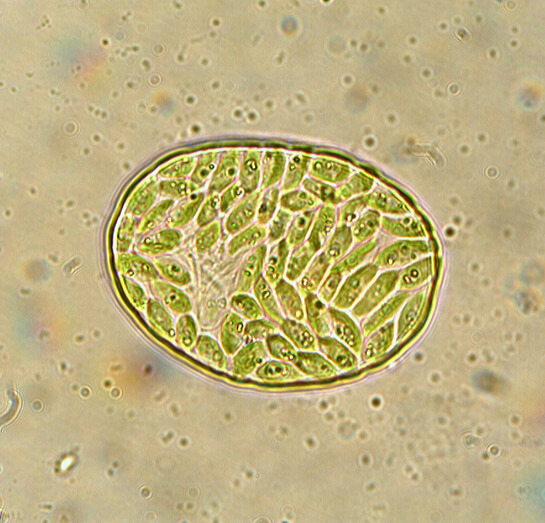Chlorella is a unicellular, green alga found in many aquatic systems and is widely sold as a health food, food supplement, and nutraceutical. The United States, Japan, China, Taiwan, and Indonesia produce over 2500 tons of dried Chlorella each year.
Chlorella is composed of 55-67% protein, 1-4% chlorophyll, 9-18% dietary fibre and numerous minerals and vitamins. The protein of Chlorella contains all essential amino acids required for the nutrition of heterotrophic organisms. Porphyrin rings in chlorophyll or glutathione induced pathway production by vitamin B12 in Chlorella have been shown to detoxify problematic metals and pesticides. Chlorella is a large producer of lutein, which has been shown to prevent and treat macular degeneration and contains anti-cataract properties.
Extracts of Chlorella have been documented as possessing diverse antitumor, antioxidant, anti-inflammatory, and antimicrobial activities. Chlorella is able to decrease blood pressure, lower cholesterol levels, accelerate wound healing, and enhance the immune system. It also has the potential to relieve symptoms and improve quality of life in people with fibromyalgia, hypertension, or ulcerative colitis. The presence of aortic atheromatous lesions was significantly inhibited and low-density lipoprotein (LDL) cholesterol levels were greatly suppressed upon consumption of Chlorella.
Current Chlorella cultivation systems can be very costly and often become contaminated by other algae or bacteria, thereby hindering production.

